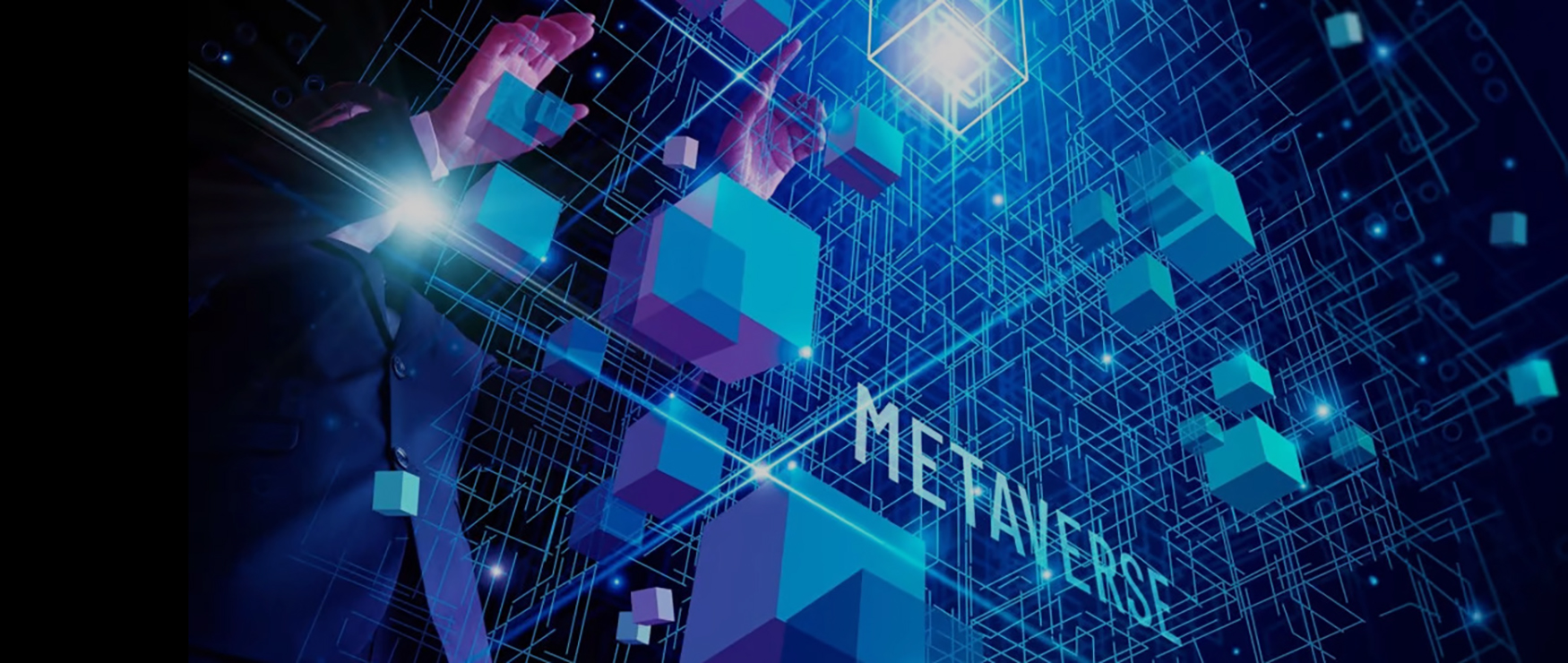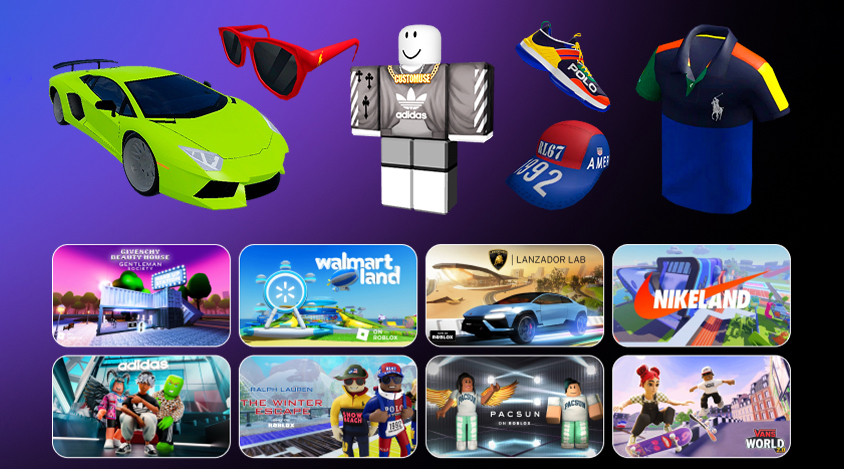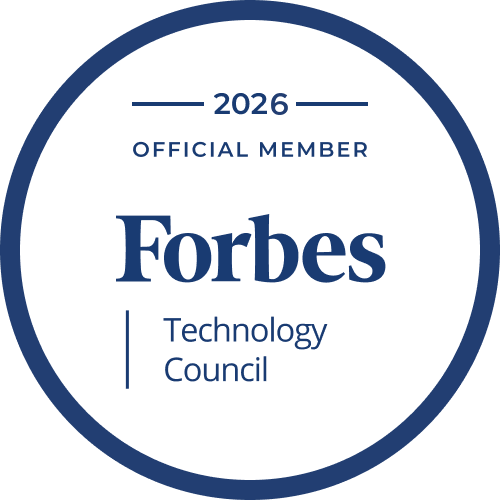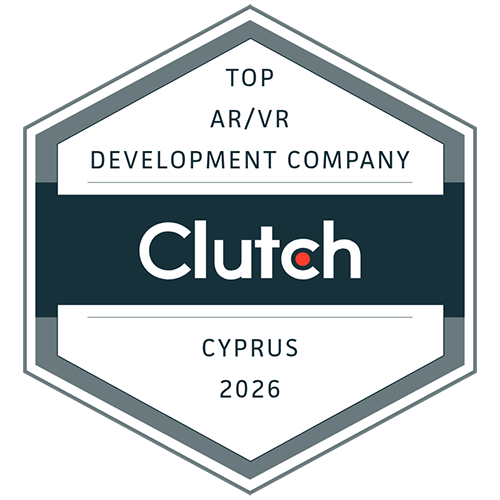Exploring the intricate relationship between NFTs and the metaverse reveals a dynamic synergy. The unique assets known as NFTs play a pivotal role in crafting immersive digital environments. With metaverse development services, businesses receive tailored solutions that perfectly align with their visions, transforming abstract ideas into virtual realities. NFT and the metaverse interplay extends beyond mere transactions, fostering a vibrant ecosystem where digital ownership and interactive experiences converge.
The burgeoning interest in NFTs and the metaverse has seen an unprecedented number of individuals and enterprises achieving significant financial success within a concise timeframe. Yet, the volatile nature of digital trends often raises concerns about their longevity and stability. Entering the metaverse and integrating NFTs into business strategies presents a compelling opportunity for entrepreneurs seeking to tap into this novel and flourishing market.
Significant figures in technology, including Mark Zuckerberg, Bill Gates, and Tim Cook, are not just participants but pioneers in the metaverse, crafting their distinct spaces that merge reality with virtuality. Their commitment underscores the metaverse's potential as a groundbreaking platform for innovation, social interaction, and commerce. The distinction between NFT vs. metaverse becomes less about competition and how they complement each other, creating a symbiotic relationship that enhances user engagement and monetization strategies.
NFTs and the metaverse together are reshaping how we conceive of online interaction and asset ownership, making digital goods a tangible part of our economic and social fabric. The utility of NFTs in the metaverse goes beyond collectability, providing the foundation for unique user identities, ownership rights, and even the mechanics of virtual real estate and economies. As companies look to establish their presence in these virtual spaces, metaverse development services offer the expertise and creativity needed to launch engaging and profitable platforms.
Understanding the nuances of NFTs and the metaverse is crucial for entrepreneurs aiming to make informed decisions in this rapidly evolving sector. Through the strategic use of metaverse and NFT, businesses can create unparalleled user experiences, capitalizing on the blend of creativity, technology, and commerce. The dynamic between NFTs and the metaverse exemplifies the future of digital engagement, where every interaction and transaction enriches the virtual landscape, making it an ever-more compelling counterpart to our physical world.
What Are NFTs and the Metaverse?
The dynamic between NFTs and the metaverse serves as a foundational element in the digital era, marking a significant shift in how digital content and virtual experiences are owned and interacted with. Non-Fungible Tokens, by design, are digital certificates that establish exclusive ownership rights over various digital assets, including images, audio files, or even parcels of virtual real estate.
In the intricate web of digital innovation, NFTs and the metaverse frequently find themselves intertwined. NFT assets emerge as integral components of the metaverse's multifaceted ecosystem, encompassing virtual games, digital art galleries, and expansive marketplaces. Developers, in crafting bespoke metaverse platforms, integrate NFTs to foster a rich tapestry of interaction and ownership.
The relationship between NFTs and the metaverse goes beyond mere coexistence; a symbiotic partnership propels the digital economy forward. As NFTs delineate ownership in the metaverse, they also underscore the uniqueness and value of digital objects and experiences, making them more than mere data. This unique relationship between NFT and the metaverse paves the way for innovative forms of engagement, commerce, and community building within these virtual spaces.
Comparing NFT vs. metaverse reveals complementary forces rather than competing entities. While NFTs provide the mechanism for proving ownership and authenticity of digital items, the metaverse offers a boundless canvas where these items can exist, be traded, and gain significance. Together, they are redefining the boundaries of digital interaction and ownership, highlighting a future where virtual experiences are as meaningful as their physical counterparts.
As the metaverse expands, its potential for transforming a wide array of real-life sectors into digital counterparts becomes increasingly evident. The metaverse is a huge part of the global digital transformation, from enhancing how individuals connect and collaborate to revolutionizing traditional business models. Within this vast digital universe, NFTs serve as the cornerstone of ownership and identity, ensuring that every digital creation, transaction, and interaction retains its value and significance.
NFT Ownership in the Metaverse
The seamless integration of NFTs within the metaverse is crafting an unparalleled digital ownership and interaction narrative, challenging traditional boundaries and creating a new frontier of digital assets.
Defining the relationship between NFTs and the metaverse is essential for understanding digital ownership. NFTs serve as verifiable digital certificates for owning unique items within the expansive realms of the metaverse, ranging from artwork and music to virtual land and beyond.
Expanding virtual horizons, NFTs and the metaverse together are reshaping the concept of digital assets. Through NFTs, users acquire irrefutable ownership of distinct items in the metaverse, fostering a sense of identity, exclusivity, and community in these digital landscapes.
Comparing NFT vs. metaverse highlights the nuanced roles each plays in the digital economy. While NFTs ensure the authenticity and ownership of digital items, the metaverse provides a boundless environment for these assets to be displayed, utilized, and traded, enhancing their value and utility.
Navigating the digital frontier, metaverse, and NFT integration facilitates a unique ecosystem. Within this ecosystem, NFTs empower users to own and control digital assets, transforming how we interact with and value virtual content.
Elevating user engagement, NFTs and the metaverse create unparalleled opportunities for interaction. NFT owners can showcase their collections in virtual galleries, participate in exclusive events, or even utilize virtual land in the metaverse to develop personalized spaces, driving a new era of digital creativity and socialization.
Transforming economies within the metaverse, NFTs introduce a revolutionary model for digital commerce. The trade of NFT assets within the metaverse underscores these virtual worlds' economic vitality and establishes a market where digital ownership translates into real-world value.
In securing digital assets, the interplay between NFTs and the metaverse ensures that every transaction and every transfer of ownership is recorded on a blockchain. This not only guarantees the authenticity of each NFT but also protects the rights of owners within the ever-evolving tapestry of the metaverse, marking a significant leap forward in the digital age.
The integration of NFTs with the metaverse provides a distinct framework for the future, blending ownership with immersive experiences in a way that reshapes digital interaction.
NFT and the Metaverse: Value Explained
Do you want to get a complete picture of what the metaverse for NFT is and vice versa? Then let’s have a detailed journey to the matter and advantages of these two concepts.
NFT
NFT stands for a nonfungible token, meaning each NFT is unique and can’t be replaced with anything. This is a safe and convenient way to buy and sell digital products of high financial and artistic value. Information about a purchase is coded and protected with Flow/Solana/Ethereum-powered blockchain technology. That’s why NFTs have become a valuable base for the metaverse economy.
Eventually, the use of NFTs in the metaverse gives the following benefits to entrepreneurs:
- High level of payment security;
- Provable ownership rights;
- New ways of income;
- Boosting marketplace efficiency;
- Making a new target audience.
The Metaverse
Since the metaverse is the internet replica of the real world, it has become a perfect platform to do business and make it develop. Using XR technologies, you can create and launch excellent NFT products that people are ready to buy for their metaverse/real lives. Also, you can promote your services or goods there, and invest in some promising metaverse areas to get the profit later. With Unity metaverse tools or other tech software, you can create a new immersive world to extend your business.
Choosing to enter the metaverse for business, you can be sure to have plenty of opportunities:
- Business scalability;
- Extending target audience;
- Delivering unique and authentic products;
- A platform suitable for various industries;
- Access to metaverse opportunities from any location;
- No physical materials and manufacturing are needed.
How NFTs Can Improve the Metaverse Experience
As you can see, the use of NFTs in a metaverse-based business is highly beneficial and sometimes even indispensable. At the same time, there might still be confusion on how enterprises can use NFTs in metaverses. That’s why we’ve collected the most vivid examples of the metaverse NFT projects you can explore below.
NFTs and real estate in the metaverse
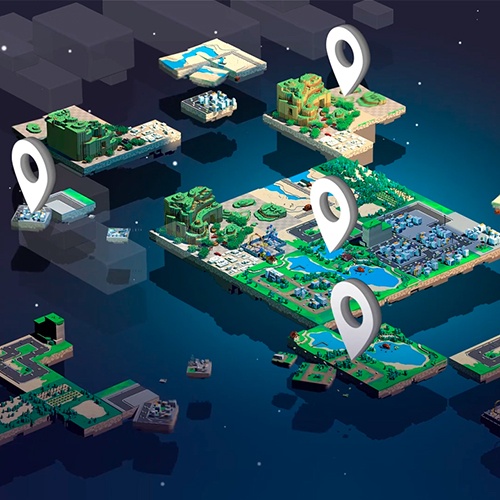
The concept of purchasing virtual real estate within the metaverse is not merely a futuristic fantasy but a tangible reality, where the lines between the physical and digital realms blur. With sales in the metaverse's real estate market already surpassing the $500m mark and predictions indicating a potential doubling of this figure within the year, the allure of digital land ownership is undeniable. Such staggering figures underscore the growing interest and financial commitment of users and investors alike to this burgeoning market.
In platforms like Sandbox or Decentraland, metaverse participants can acquire digital land parcels as NFTs. This process not only grants them the title of real estate investors within these virtual worlds but also affords them undeniable ownership rights over their digital properties. With these rights, they can resale their digital assets, targeting businesses aiming to establish a digital presence or other investors seeking lucrative opportunities within the metaverse. The interaction between NFTs and the metaverse demonstrates the profound potential for economic activities that mirror the physical world.
One of the most compelling aspects of investing in metaverse real estate lies in its streamlined process. Unlike the traditional real estate market, which is often encumbered by bureaucratic procedures, extensive paperwork, and the necessity of legal counsel, transactions within the metaverse are notably more straightforward. Purchasers can acquire land and property devoid of these common obstacles, facilitating a smoother and more efficient investment process.
The synergy between NFTs and the metaverse revolutionizes the concept of property ownership, enabling a frictionless transaction environment and opening up new avenues for investment and business expansion in digital domains. As the metaverse continues to evolve, the relationship between metaverse and NFT, mainly through the lens of real estate, presents an intriguing glimpse into the future of digital commerce and investment.
NFTs and gaming in the metaverse
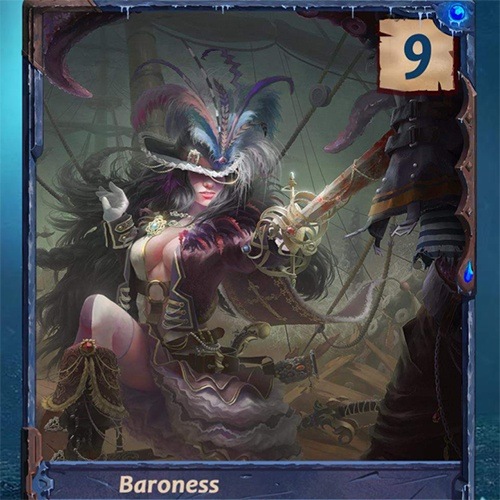
Entertainment stands as a pivotal draw for individuals exploring the metaverse, catering to a diverse audience from avid gamers seeking new challenges after exhausting their gaming wishlists to entrepreneurs looking for enjoyable ways to generate income. As a matter of fact, the allure of NFT metaverse games captivates a wide range of users, offering unique experiences that blend entertainment with potential financial rewards. This convergence creates a vibrant ecosystem where creativity, commerce, and digital adventures thrive.
At the core of this entertainment revolution within the metaverse are NFT games, innovative platforms where players can acquire or earn gaming NFT assets. These assets can range from virtual equipment and exclusive items to digital real estate and characters, all of which hold real-world value. The concept known as Play-to-Earn has surged in popularity, marking a shift in the gaming industry towards a model where time and skill investment can translate into tangible earnings.
The metaverse serves as an ideal backdrop for these NFT games, thanks to its AR/VR-enhanced environments that offer players an immersive experience unlike any other. Within these virtual worlds, gamers are not just participants but active contributors to the ecosystem, leveraging the metaverse and NFT to craft, exchange, and monetize their in-game achievements and assets. The dynamic interaction between NFTs and the metaverse elevates the gaming experience, making it richer and more engaging.
Comparing NFT vs. metaverse in the context of gaming highlights how NFTs add value and depth to the metaverse by introducing economic layers and opportunities for ownership that were previously unimaginable. NFT games are at the vanguard of this transition as the lines between gaming, entertainment, and economic activity continue to blur. They provide a view into the future of digital interaction, in which the metaverse is used for both enjoyment and profit.
The convergence of NFTs and the metaverse is reshaping how people engage with digital content, merging the thrill of gaming with the rewards of asset accumulation and trade. As this trend progresses, the metaverse is poised to become an even more vibrant and economically diverse ecosystem fueled by the creativity and participation of its inhabitants. Through the lens of NFT games, the metaverse reveals its full potential as a platform for innovation, entertainment, and entrepreneurship.
NFTs and virtual life in the metaverse

Within the vast expanses of the metaverse, individuals find themselves immersed in virtual realities that mirror various facets of their daily lives, all through the lens of personal digital personas. These personas, or avatars, represent metaverse members as three-dimensional models, offering a digital embodiment of the user's identity. Such an immersive interaction enhances the sense of presence and belonging, bridging the gap between virtual and physical realms as well as fostering a uniquely engaging experience.
Acquiring an avatar can be achieved in several ways, including purchasing an NFT avatar from a marketplace or creating one's own through a minting process. This customization and ownership of digital identities within the metaverse highlight the seamless integration of NFTs and the virtual world, offering users a unique blend of personal expression and digital asset management.
The metaverse event industry is another domain where the fusion of NFTs and the virtual world truly shines. This industry facilitates a wide range of social interactions and experiences, from festive gatherings with friends represented by their avatars to attending virtual conferences and concerts. A particularly unique aspect of social interactions in the metaverse is the possibility of organizing and celebrating a marriage in VR. This process includes everything from the proposal and wedding ceremony to the festivities that follow.
Participants can even obtain an NFT marriage certificate as a commemoration of their virtual union. Although such a certificate may not hold legal validity in the physical world, it represents a significant milestone in the relationship between NFTs and the metaverse, where personal milestones are celebrated and immortalized as digital assets.
The dynamic between NFT vs. metaverse is exemplified by how personal experiences and interactions are enhanced and preserved through non-fungible tokens. In the metaverse, the event industry, social gatherings, and even personal commitments like marriage are reimagined through the lens of digital innovation.
NFTs serve not only as collectibles or investments but as integral components of virtual experiences, providing tangible value to the intangible moments shared within these digital realms. As the metaverse continues to evolve, the integration of NFTs within this virtual space is creating new opportunities for engagement, entertainment, and the preservation of digital memories, redefining the boundaries of online interaction and community.
NFTs and e-commerce in the metaverse
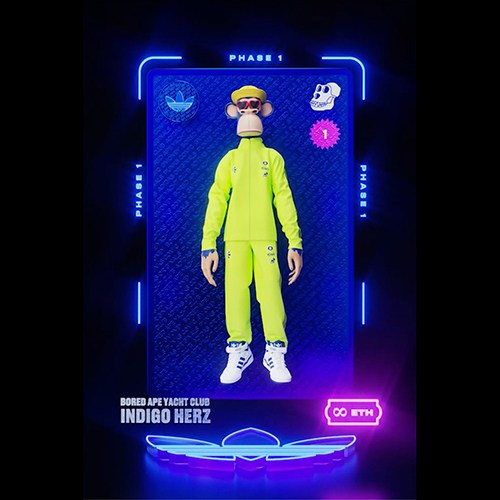
Numerous globally recognized brands have adeptly positioned themselves within the burgeoning sphere of NFTs and the metaverse, capitalizing on the digital wave that merges the realms of tangible and virtual goods. Adidas, a name synonymous with innovation in sportswear, has entered this digital domain significantly. The brand launched an avant-garde collection that seamlessly blends physical apparel with digital assets in the form of NFTs, accessible through the vast landscapes of the metaverse.
The launch of this collection marks a pioneering move by Adidas, executed in collaboration with notable entities within the NFT space. Partnerships were formed with the Bored Ape Yacht Club, a collective renowned for their distinctive NFT artistry, alongside NFT influencer Gmoney and the creators behind Punks Comics. This strategic alliance underscores the dynamic interplay between NFTs and the metaverse, where digital and physical worlds converge to create unique consumer experiences.
Adidas's foray into this digital frontier allows metaverse enthusiasts to acquire and don virtual renditions of the brand's apparel, facilitating a novel way to express personal style within virtual environments. Concurrently, these digital items correspond with physical counterparts, enabling a dual-reality experience where one's digital and physical personas can mirror each other. The synergy between metaverse and NFT technology propels this initiative, highlighting the potential for NFTs to bridge the gap between digital collectibility and real-world utility.
The narrative of NFT vs. metaverse is enriched by such ventures, illustrating not a competition but a complementarity that enhances the value and appeal of digital and tangible products. As Adidas has launched into the metaverse with its NFT collection, it paves the way for a future where the integration of NFTs into the metaverse becomes a standard for brands seeking to innovate and connect with a digitally-savvy audience.
NFTs and marketing in the metaverse
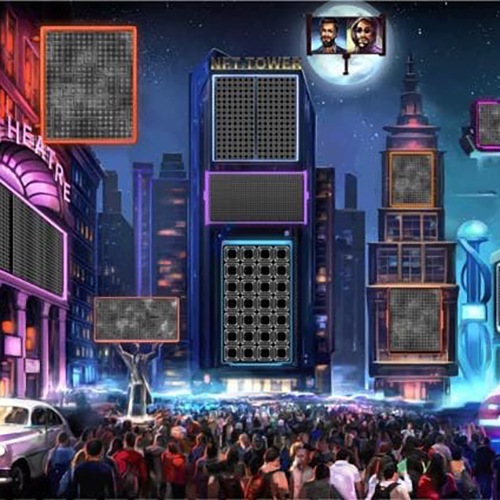
Launching a store or establishing a virtual company presence within the metaverse naturally garners attention, serving as a promotional vehicle in its own right due to the novelty and innovation it brings. Building upon this foundational concept, the creators behind the Metaverse Avenue project have reimagined the iconic Times Square advertising model, infusing it with the boundless possibilities of the metaverse. Such an ambitious initiative elevates traditional advertising to a new dimension.
The Metaverse Avenue project pioneers the concept of a dedicated advertising space within the metaverse, characterized by its NFT-based framework. This groundbreaking approach not only facilitates a marketplace where companies can both acquire and offer advertising spaces as NFTs but also offers a range of benefits.
The flexibility of this system allows for a wide array of commercial content, from static images and captivating animations to full-motion videos, all displayed on digital billboards of varying dimensions. This model not only highlights the symbiotic relationship between NFTs and the metaverse but also showcases the unique capabilities of NFT technology in providing verifiable, exclusive ownership of digital real estate and advertising assets, revolutionizing the way we think about digital advertising.
In this digital realm, the dynamic between NFT vs. metaverse is illustrated through the innovative application of NFT technology to create a versatile and immersive advertising platform. As companies navigate the intricacies of marketing within the metaverse, the opportunity to leverage NFTs for advertising space transforms the way brands think about engagement and visibility in virtual environments. NFTs, in this context, serve as the digital keys that unlock access to these virtual advertising spaces, providing a secure and transparent way for brands to own and display their ads.
The Metaverse Avenue project represents a significant milestone in the evolution of digital marketing, offering an unprecedented avenue for brands to showcase their products and services within the first NFT-based advertising metaverse. By merging the visual impact of Times Square's advertising with the immersive and interactive nature of the metaverse, this project not only broadens the horizon for digital advertising but also underscores the growing interconnection between metaverse and NFT ecosystems.

Music, Entertainment, and NFTs in the Metaverse
The convergence of music and entertainment with NFTs within the metaverse unfolds a transformative narrative for creative expression and ownership. This digital nexus offers artists and audiences a novel platform where the immersive nature of the metaverse and the tangible value of NFTs merge to redefine engagement and monetization of artistic content.
Key aspects of this fusion:
- Immersive concerts in the metaverse bring live performances to a global audience, enabling attendees to experience shows from anywhere in the world.
- NFTs deepen the artist-fan connection by allowing for the direct monetization of exclusive digital merchandise, album art, and special access. This fosters a closer relationship between creators and supporters.
- Creative ownership through NFTs in the metaverse ensures artists maintain control over their work, guaranteeing rightful earnings and recognition.
The partnership of the metaverse and NFT creates a vibrant ecosystem for music and entertainment to flourish beyond conventional limits. The metaverse eliminates the physical and financial barriers that traditionally restrict access to cultural experiences, establishing a universally accessible platform for artistic exploration and enjoyment.
Benefits for stakeholders:
- Artists find a direct pathway to engage with their audience and monetize unique creations in ways previously unimaginable.
- Fans are afforded unprecedented access to immersive experiences and the chance to own a part of their favorite artist's legacy.
- Investors observe the emergence of a novel entertainment economy ripe with opportunities for significant investment returns.
In the trajectory toward a digital future, the intertwined evolution of NFTs and the metaverse heralds a reimagined domain for music and entertainment. This burgeoning space, rich with potential for innovation and growth, is steadily laying the groundwork for an era where virtual concerts and digital releases become the norm, enriching the cultural tapestry of our lives.
NFT vs. Traditional Ownership in the Metaverse
| Aspect | NFT Ownership in the Metaverse | Traditional Ownership in the Metaverse |
| Nature of Ownership | Digital assets are owned as NFTs, providing indisputable proof of ownership and authenticity through blockchain technology. | Traditional ownership in the metaverse often relies on platform-specific terms and conditions, lacking the blockchain's verifiability. |
| Transferability | High. NFTs can be easily transferred or sold across different platforms and users, thanks to the interoperability of blockchain networks. | Limited. Transferring traditional digital assets can be cumbersome, restricted by platform policies and lacking cross-platform support. |
| Proof of Authenticity | NFTs inherently ensure authenticity and originality, as each token is unique and its history is permanently recorded on the blockchain. | Authenticity is harder to prove, relying on the issuing platform’s ability to manage and secure records. |
| Exclusivity | Ownership of NFTs often grants exclusive rights or access to certain parts of the metaverse, enhancing the user experience. | Traditional ownership may not offer the same level of exclusivity or special privileges within the metaverse environment. |
| Potential for Appreciation | NFTs have a significant potential for appreciation in value, driven by market demand, rarity, and uniqueness. | Traditional assets may appreciate in value but are often less influenced by market dynamics compared to NFTs. |
| Interaction with the Metaverse | NFTs and the metaverse are intrinsically linked, allowing for a dynamic interaction where assets can be utilized or showcased across various virtual environments. | Traditional ownership is usually static, with assets existing in a fixed state or location within the metaverse. |
How to Get Started With NFTs in the Metaverse
Despite the significant inroads made by numerous industry leaders into the metaverse, a vast array of companies remains on the periphery, yet to explore the boundless opportunities that this digital frontier offers. By venturing into the metaverse with bespoke solutions that integrate custom NFTs, your enterprise has the potential to distinguish itself as an innovator among competitors. The integration of NFTs and the metaverse presents a unique proposition, blending digital ownership with immersive experiences to create value both for the brand and its audience.
Embarking on this journey requires assembling a team of adept developers whose expertise spans the complex landscape of metaverse development. Given the nascent stage of this field, pinpointing professionals with the requisite depth of knowledge and experience in Extended Reality (XR) and blockchain technology poses a significant challenge. The intricacies of developing for the metaverse, coupled with the nuances of NFT creation and integration, demand a level of proficiency that only seasoned experts possess.
As the metaverse continues to evolve, the importance of NFTs within this space cannot be overstated. NFTs serve as the cornerstone for establishing ownership and authenticity of digital assets, a critical component in the expansive and ever-changing metaverse. The dynamic interplay between the metaverse and NFT technology opens up new avenues for businesses to engage with their audience, offering unparalleled experiences that transcend the limitations of the physical world.
The juxtaposition of NFT vs. metaverse highlights not a rivalry but a complementary relationship that propels the digital economy forward. For companies looking to navigate the complexities of the metaverse, the decision to leverage NFTs signifies a forward-thinking approach to digital interaction and asset management.
In conclusion, stepping into the metaverse equipped with custom NFTs is an ambitious endeavor that requires a confluence of specialized skills in XR and blockchain technologies. This venture not only sets the stage for pioneering digital experiences but also establishes a framework for innovation and engagement in the rapidly expanding universe of the metaverse. As the digital landscape continues to grow, the role of NFTs within the metaverse becomes increasingly pivotal, marking a new era of digital exploration and interaction.
An NFT Marketplace Inside the DeFi VR World by Program-Ace

This custom-tailored metaverse is a virtual environment where users can trade NFTs on a local marketplace as well as utilize all the fruits of a Web3 social network. With an avatar creation tool, 3D shop location, etc., this metaverse continues to evolve.
Level Up Your Business With a Custom Metaverse Solution
Once you decide to become a part of a metaverse business world, you can rely on Program-Ace — a software development service provider with 30 years of experience developing immersive solutions of all kinds. Moreover, we have deep 3D modeling and game development expertise, including NFT ones.
Outsourcing your project will free you from finding and hiring the right developers for an in-house team since we've already got a talented metaverse development team. Thus, we are ready to manage this project for you or dedicate our best specialists to your team.
Simply contact us to get a detailed consultation on building an outstanding metaverse solution for your company.
